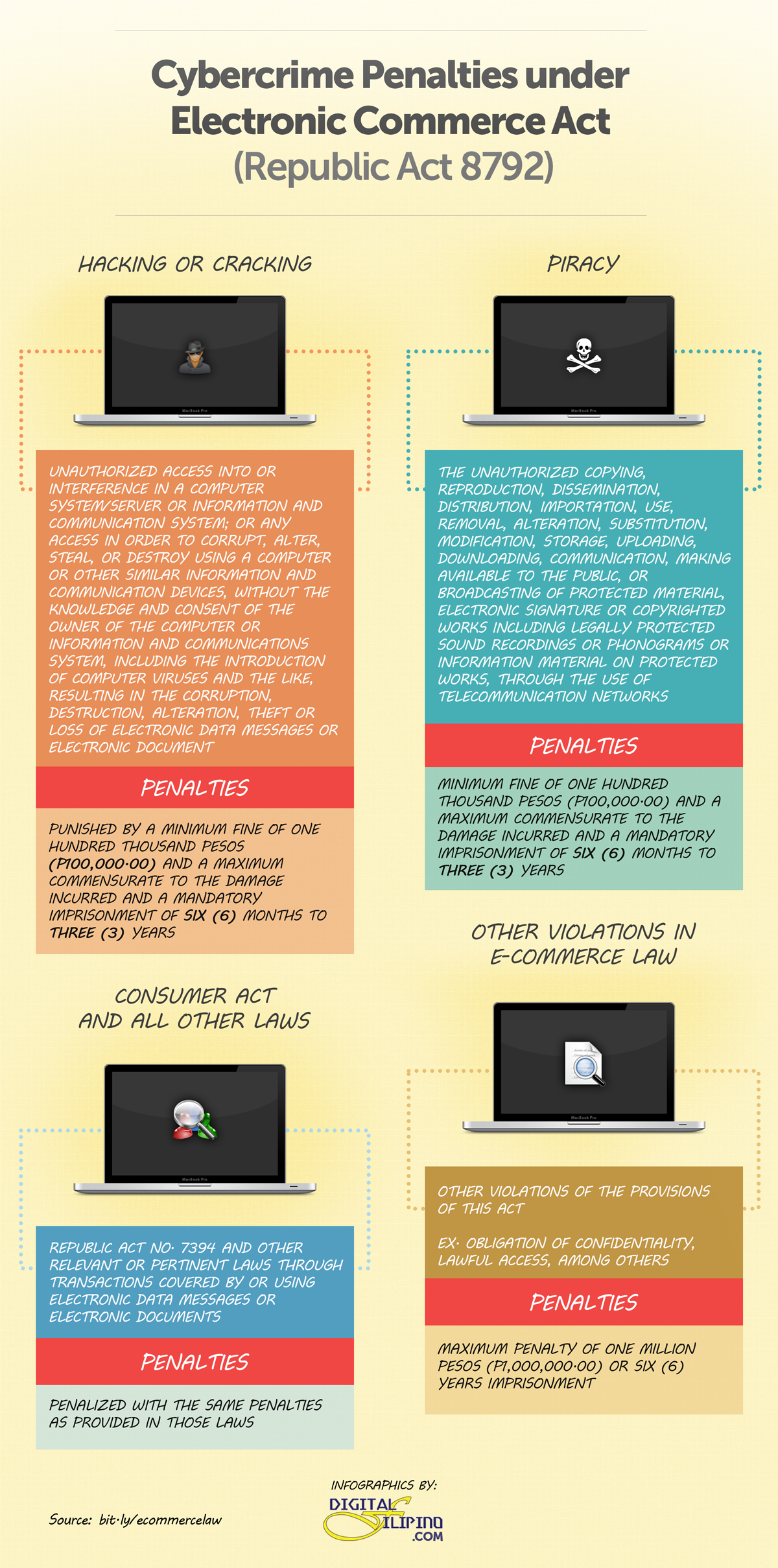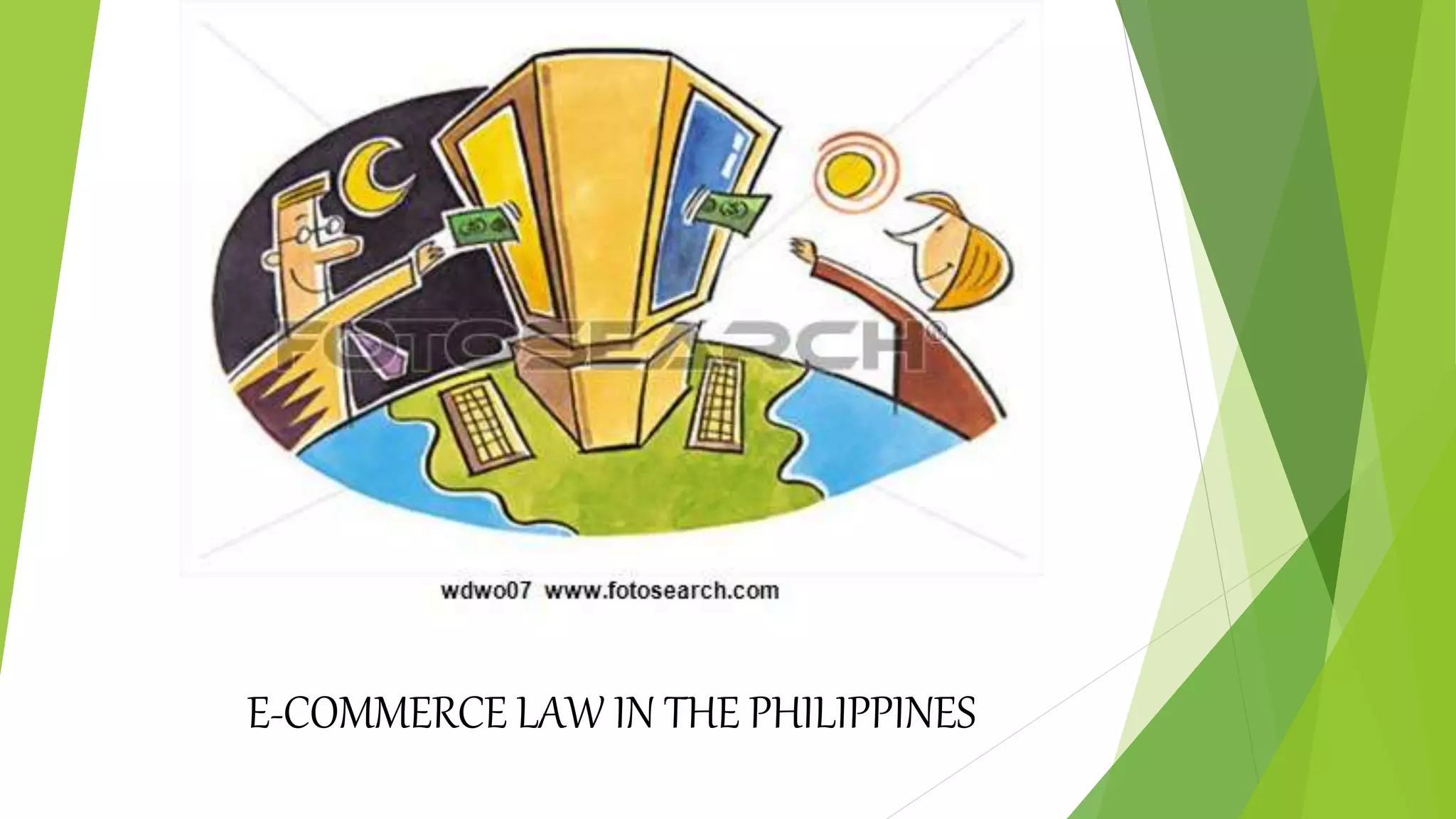To ensure compliance with Philippine consumer protection and data privacy laws in e-commerce, businesses must adhere to several key legal frameworks and obligations:
-
Consumer Protection Laws
- Comply with the Consumer Act of the Philippines (Republic Act No. 7394), which guarantees consumer rights such as the right to accurate product information, freedom of choice, fair terms, and effective redress for defective or misrepresented goods and services, applicable to online transactions as well.
- Follow the E-Commerce Act of 2000 (Republic Act No. 8792), which legally recognizes electronic contracts and signatures, ensuring the validity and enforceability of online transactions.
- Abide by the Internet Transactions Act (Republic Act No. 11967, 2023), which mandates online merchants to disclose product details (name, brand, price, condition, contact info), provide responsive redress mechanisms, maintain updated user account lists, and protect consumer data privacy.
- Ensure transparency in pricing, product descriptions, delivery conditions, and provide receipts or proof of transactions.
- Establish accessible complaint and dispute resolution channels for consumers.
-
Data Privacy Compliance
- Adhere to the Data Privacy Act of 2012 (Republic Act No. 10173), which requires the protection of personal data collected during e-commerce transactions, ensuring lawful processing, data security, and respect for consumer privacy rights such as the right to information, access, correction, and objection.
- Implement appropriate technical and organizational measures to safeguard consumer data against unauthorized access or breaches, following standards set by the National Privacy Commission (NPC) and other relevant agencies.
- Inform consumers about their data privacy rights and the purposes of data collection at the point of transaction.
-
Platform and Merchant Responsibilities
- E-commerce platforms and social media marketplaces must distinguish commercial from private accounts, prohibit illegal sales, and provide mechanisms to report illegal content or violations.
- Maintain updated records of users and cooperate with authorities when legally required.
- Ensure that digital goods meet minimum standards for accessibility, interoperability, and cybersecurity.
By integrating these legal requirements into their operations, e-commerce businesses in the Philippines can protect consumers effectively while minimizing legal risks related to consumer rights and data privacy. Compliance involves transparent communication, secure handling of personal data, and robust mechanisms for consumer redress and dispute resolution.




















Ang PH Ranking ay nag-aalok ng pinakamataas na kalidad ng mga serbisyo sa website traffic sa Pilipinas. Nagbibigay kami ng iba’t ibang uri ng serbisyo sa trapiko para sa aming mga kliyente, kabilang ang website traffic, desktop traffic, mobile traffic, Google traffic, search traffic, eCommerce traffic, YouTube traffic, at TikTok traffic. Ang aming website ay may 100% kasiyahan ng customer, kaya maaari kang bumili ng malaking dami ng SEO traffic online nang may kumpiyansa. Sa halagang 720 PHP bawat buwan, maaari mong agad pataasin ang trapiko sa website, pagandahin ang SEO performance, at pataasin ang iyong mga benta!
Nahihirapan bang pumili ng traffic package? Makipag-ugnayan sa amin, at tutulungan ka ng aming staff.
Libreng Konsultasyon